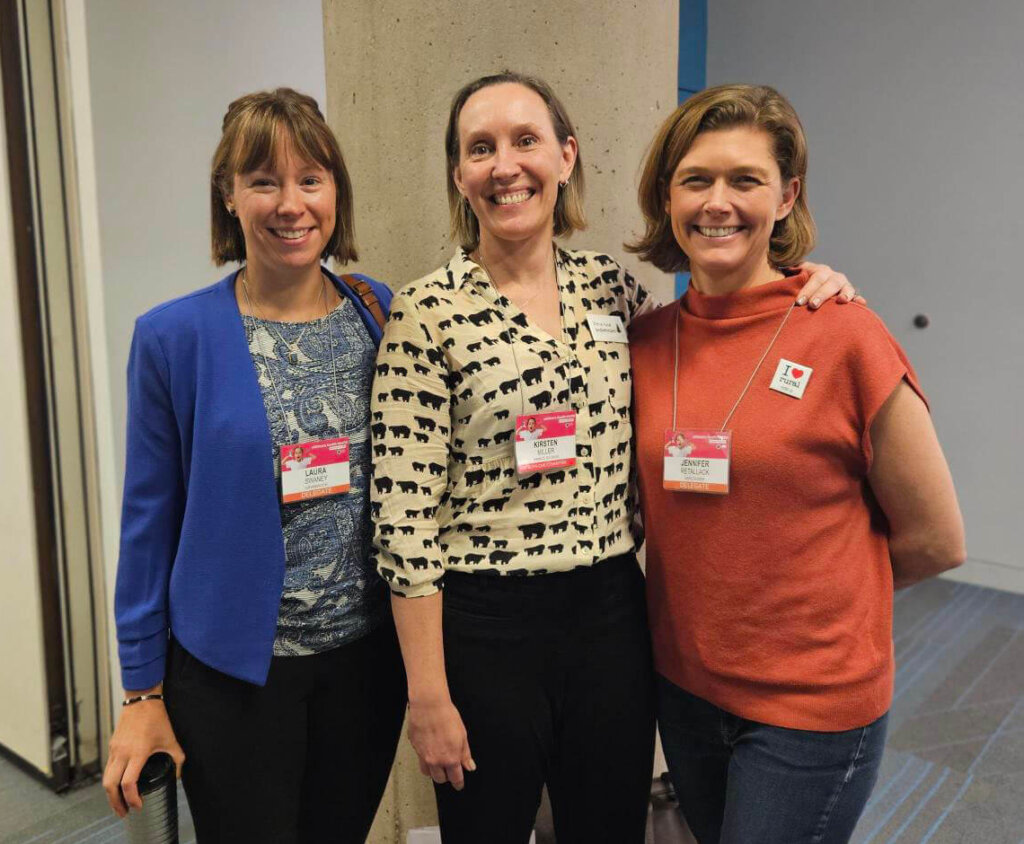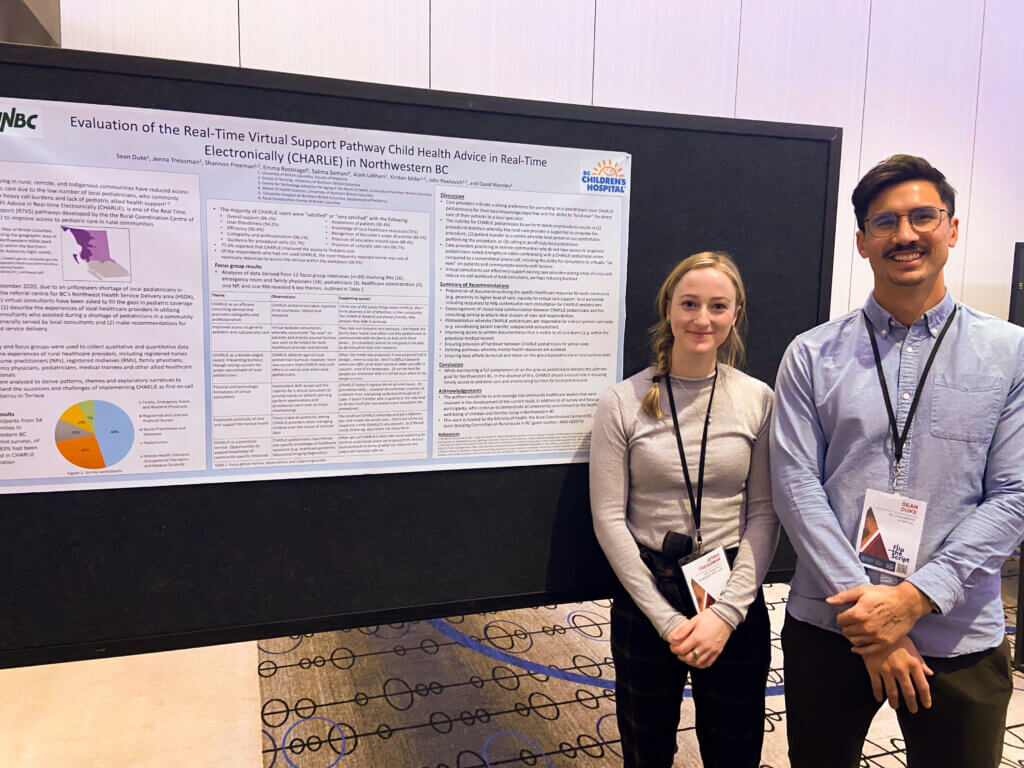Pediatricians from the Rural Coordination Centre of BC’s (RCCbc) network are helping to improve equity of access to pediatric care for rural children—despite the ongoing health human resources challenges.
The Real-Time Virtual Support (RTVS) CHARLiE pathway, administered by RCCbc, is on the pediatrician on-call schedule for rural hospitals across the province—and the list is growing. It is also the first team to be contacted if there are sick children at First Nations Health Authority (FNHA) nursing stations.
CHARLiE—which stands for Child Health Advice in ReaL-time Electronically—is available 24/7 via phone or video for any rural provider looking for a consultation or support from a pediatrician. Calls range from questions about medication for toddlers, to resuscitation of neonates and more. CHARLiE can also assist rural providers in connecting to the NICU and PICU at BC Children’s Hospital and getting sick children to a higher level of care through the Patient Transfer Network (PTN).

Miller and Dr. Jennifer Retallack from the CHARLiE team.
In addition to the FNHA sites—where nurses often work without the support of an in-person physician—CHARLiE is designated as first-call for pediatrics in most of northwestern BC.

On Vancouver Island, CHARLiE is listed on the call rota in communities where there are gaps in local pediatrician availability. This means that not only can local pediatricians avoid the pressure and stress of providing continuous coverage but also there isn’t the same burden on regional call groups, who have indicated inability to absorb these calls.
In Interior Health (IH), CHARLiE is listed as preferred first call for many rural centres in the Thompson/Cariboo/Shuswap, and an option for several sites in the Okanagan. Within IH, CHARLiE is also encouraged if the regional pediatrician is unavailable or to support any provider with patient transport needs.
Dr. Melissa Paquette, who co-leads the CHARLiE pathway, along with Dr. Arthur Cogswell, said: “The CHARLiE service has been invaluable to communities that do not have access to a pediatrician. Additionally, in places where pediatricians are unable to provide 24/7 coverage for their rural hospital, the service supports those pediatricians by allowing them time off call, thereby reducing the risk of burn out.”
Melissa, who is based in Sun Peaks, will be presenting about CHARLiE at the Canadian Pediatric Society’s upcoming May 2025 conference.
“The CHARLiE service has been invaluable to communities that do not have access to a pediatrician. Additionally, in places where pediatricians are unable to provide 24/7 coverage for their rural hospital, the service supports those pediatricians by allowing them time off call, thereby reducing the risk of burn out”
Evidence
There is evidence of the positive impact of CHARLiE being on the pediatrics call rota. A study into CHARLiE being first-on call for the Terrace area was conducted over a 28-month period and it found that the study participants valued CHARLiE’s 24/7, timely, and collegial video support. The study concluded that while maintaining a full complement of on-the-ground pediatricians remains the goal for some rural communities, dedicated virtual support provides access to pediatric care in smaller communities, thereby improving health equity for children in BC.

The study, led by UBC Pediatrics resident Dr. Sean Duke, also found that CHARLiE was able to help with rural pediatrician burn-out. One respondent said: “I don’t think I would have been able to … stay as a provider in my community had it not been for CHARLiE.”
The study, published in the journal Paediatrics and Child Health, was released in October 2024.
Efforts to support on-the-ground pediatricians are also being made through another RCCbc initiative—SPRUCE (Sustaining Pediatrics in Rural and Underserved Communities).
Drs. Kirsten Miller and Jenny Retallack, who co-lead SPRUCE in addition to being CHARLiE pediatricians, have created a network for pediatricians who work rurally. SPRUCe aims to foster connectiveness, to provide rurally-relevant pediatric education and training, and to collect and disseminate data about the status of pediatric service in rural BC. They help connect pediatric locum providers with rural communities and pediatricians, and help establish visiting pediatric clinics for communities in need. All of these activities support the recruitment and retention of rural pediatricians.
Kirsten, who is based in Prince George, said: “The high number of unfilled pediatric positions across BC is felt particularly acutely in rural communities, where the few pediatricians who remain in practice are under significant pressure to maintain continuous service. SPRUCe is committed to helping rural pediatricians and to doing everything possible to support them so that they can continue their valuable work while maintaining some quality of life.”
Find out more about CHARLiE and SPRUCE on the RCCbc website.


